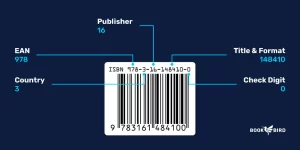As Saudi Arabia continues its rapid economic transformation under Vision 2030, businesses of all sizes are embracing digital solutions to improve efficiency and ensure compliance with evolving regulations. One of the most critical tools in this transition is accounting software in saudi arabia, and the demand for reliable, localized options in Saudi Arabia has never been higher.
Why Accounting Software Is Essential for Businesses in Saudi Arabia
Gone are the days of manual bookkeeping and spreadsheets. Modern accounting software streamlines financial management, improves accuracy, and helps businesses stay compliant with tax regulations, including Zakat, VAT (Value Added Tax), and e-invoicing standards set by the Zakat, Tax and Customs Authority (ZATCA).
In Saudi Arabia, these regulatory requirements have made it essential for companies to invest in robust, locally compliant software.
Key Features to Look For
When evaluating accounting software in Saudi Arabia, businesses should consider the following features:
-
Arabic Language Support: Many businesses operate bilingually, so having software that supports Arabic and English is crucial.
-
ZATCA Compliance: As of 2025, all e-invoicing solutions must comply with Phase 2 of the e-invoicing initiative (Fatoora).
-
Cloud-Based Access: Secure, cloud-based platforms offer better scalability and remote accessibility, which is particularly useful for growing businesses.
-
Multi-Currency Support: With international trade and foreign investment increasing, dealing with multiple currencies is often a necessity.
-
Inventory and Payroll Integration: For SMEs and larger enterprises alike, integrated modules reduce the need for separate systems.
Top Accounting Software Options in Saudi Arabia
Here are some of the most popular and trusted accounting software platforms used in the Saudi market:
1. Zoho Books
A favorite among SMEs, Zoho Books is cloud-based, VAT-compliant, and offers excellent Arabic language support. It’s affordable and easy to use, making it ideal for startups and small businesses.
2. QuickBooks
QuickBooks by Intuit is globally recognized and widely used in Saudi Arabia. While it offers strong accounting features, some businesses may need to use third-party integrations for full VAT and ZATCA compliance.
3. FreshBooks
Another user-friendly cloud solution, FreshBooks is great for freelancers and small teams. It supports basic accounting functions and client invoicing but may require customization for full regulatory alignment in Saudi Arabia.
4. Sage 50 (Peachtree)
Sage is a veteran in the accounting world. With a strong presence in the Middle East, Sage 50 offers comprehensive features, including payroll, inventory, and tax management.
5. Odoo
Odoo is an open-source ERP that includes a powerful accounting module. It’s customizable, supports Arabic, and can be configured for ZATCA compliance, making it a favorite among tech-savvy businesses and developers.
Localized Solutions: Saudi-Based Providers
Some homegrown solutions tailor their services to the Saudi business environment. These often come pre-configured with ZATCA compliance and Arabic interfaces:
-
Qoyod
-
Aliphia
-
Smart Accounting
These local options are built with Saudi tax laws in mind and often provide customer support in Arabic.
Final Thoughts
With the growing complexity of financial regulations in the Kingdom, choosing the right accounting software in saudi arabia is not just about convenience—it’s a strategic decision. Whether you’re a startup, SME, or large enterprise, adopting a compliant and user-friendly solution can save time, reduce costs, and ensure you meet all legal obligations.
When making your choice, consider your business size, the nature of your operations, and how well the software aligns with your industry and regulatory needs.





